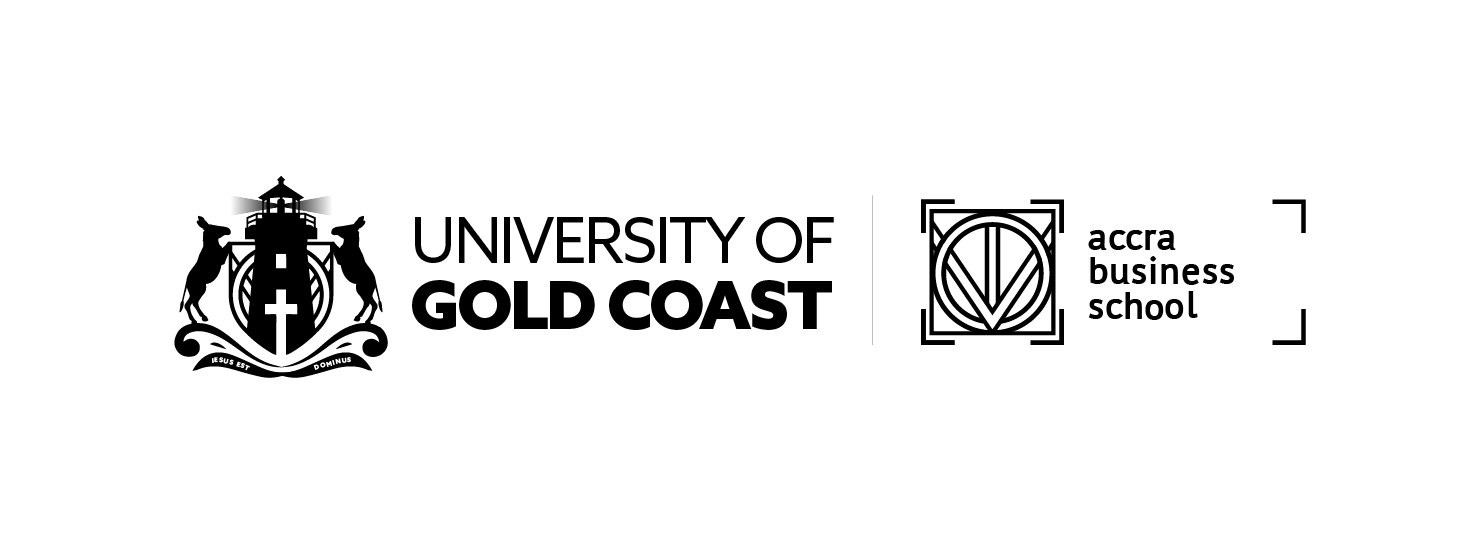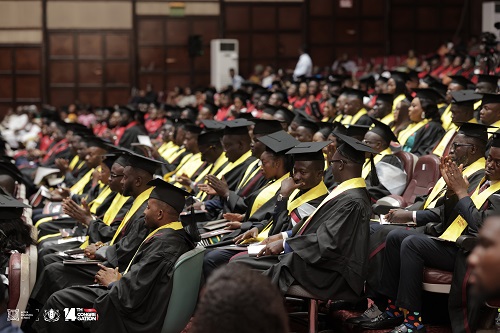The 14th congregation of the Accra Business School (ABS) took place last Saturday at the Accra International Conference Centre, where a total of 261 students received degrees and diplomas in various disciplines.
Among the graduates were 26 students from the inaugural cohort of the Masters in Business Administration (MBA) program in collaboration with Wrexham University in the United Kingdom. These students commenced their studies in February 2022. Additionally, there were 116 MBA (KNUST) graduates, 76 Masters (MSc) in Accounting and Finance graduates, and 25 Postgraduate Diploma holders.
The congregation centered around the theme “Alternatives to IMF Conditionalities for Economic Development in Ghana.”
The valedictorian of the graduating class was Master Selorm Dzah, who received subject awards in Derivatives Securities and International Auditing and Assurance.
During his address, Bishop Gideon Titi-Ofei, the Founder and Chairman of the Accra Business School, highlighted the achievements of the graduating class and emphasized the importance of addressing Ghana’s economic challenges.
Bishop Titi-Ofei expressed gratitude to the ABS management team and staff, acknowledging their contributions to the success of the graduation ceremony. He extended congratulations to the 261 graduands, urging all attendees to join in celebrating their accomplishments.
Recognizing the economic hurdles faced by Ghana, Bishop Titi-Ofei emphasized that the conditionalities imposed by the IMF presented an opportunity to address underlying issues hindering the country’s progress. He underscored the significance of supporting small and medium-sized enterprises (SMEs) to generate employment and increase incomes, proposing measures such as improved credit accessibility, reduced bureaucracy, and an enhanced business environment.
The Bishop emphasized the importance of investing in education and skills training as a crucial strategy to combat poverty. He suggested initiatives such as vocational training programs, expanded access to higher education, and job placement services to equip citizens with the necessary skills for a more productive and prosperous society.
While acknowledging the challenges and resources required for these endeavors, Bishop Titi-Ofei stressed the need for decisive action to secure a brighter future for Ghana. Drawing inspiration from scriptural references and biblical examples, he highlighted the value of hard work, diligence, and social justice in achieving economic prosperity. He referred to the story of Joseph in Genesis, who triumphed over adversity and played a pivotal role in navigating economic crises, as well as the early Christian community in the book of Acts, emphasizing their unity and commitment to caring for the less fortunate.
In conclusion, Bishop Titi-Ofei urged the congregation to remain steadfast in the pursuit of creating jobs, increasing incomes, and reducing poverty in Ghana. He called for collective efforts in embracing the values of hard work, diligence, and social justice to build a more prosperous and equitable society.
During the event, Bernard Avle, the General Manager of Citi GM, delivered a keynote address, highlighting Ghana’s reliance on the IMF for financial bailouts 17 times since gaining independence in 1957.
Mr. Avle argued that IMF programs have failed to transform Ghana’s post-colonial economy into a resilient and dynamic one. He pointed out that recent IMF programs in 2003, 2009, and 2015 did not achieve the desired transformation because they primarily focused on short-term stability rather than addressing the fundamental structural issues hindering long-term growth and transformation.
Mr. Avle criticized the IMF’s analytical tools and policy prescriptions, considering them unsuitable for post-colonial economies like Ghana’s. He highlighted that the IMF’s emphasis on debt servicing and macroeconomic stability overlooks the underlying reasons behind debt accumulation. He also expressed concerns about the reliance on non-concessionary loans and commercial arrangements, such as Eurobonds, which increase vulnerability to international capital markets.
The speaker advocated for economic and monetary sovereignty as an alternative to the IMF. He emphasized the importance of reducing Ghana’s vulnerability to external debts by promoting domestic production and reducing dependence on imported food and fuel. Avle compared Ghana’s significant annual imports of essential food commodities, amounting to an average of $2 billion, with Israel’s ability to produce 95% of its food requirements despite challenging geographical conditions. He called for a shift towards sustainable agriculture, energy sovereignty through renewable resources, and value-added manufacturing, citing examples from countries like Costa Rica and Vietnam.
Mr. Avle also highlighted the significance of quality business education in driving economic development. He commended the Accra Business School for its practical approach, focus on job experience, and adherence to global standards. He emphasized that the caliber of business leaders trained by institutions like the Accra Business School would play a crucial role in determining the quality and quantity of jobs created in Ghana.


